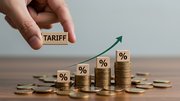Commentary
Kagan: Amazon effect only part of reason Toys R Us failed
Jeff Kagan says we shouldn't be too quick to blame the failure of Toys R Us on Amazon. A good deal of the blame, he says, should land on the toy seller's shoulders.

March 21, 2018 by Jeff KAGAN — Wireless Analyst, Telecom Industry Analyst
The 'Amazon Effect' changes everything, but was this the cause of the Toys R Us failure? As Amazon.com continues on its rapid rise on its long-term growth curve, we blame them for the death, or at least the slowdown, of other companies in many industries. However, with Toys R Us, Amazon was just part of the problem. The rest of the problem came from Toys R Us themselves.
Let me explain what I am talking about and help other companies from falling victim themselves. True, Amazon ushers in new ways of doing business. They have both directly and indirectly put many companies out of business. Think back to the early days of the 1990s. The book business was already going through enormous changes.
You remember the movie "You've Got Mail," with Tom Hanks and Meg Ryan. It was released in 1998 and was the story of how large Barnes & Noble type bookstores were putting the smaller, mom and pop stores out of business. We thought that was the ultimate direction the industry was heading. We were wrong. It was just one step. The next step was the Amazon Effect.
"You've Got Mail" is story of how Amazon changes industries
Today may be time for a remake called, "You've Got Mail, 2." This one can be the story of how an unknown online bookseller completely transformed the retail book selling industry. Now, move ahead two decades and we see Amazon technology transforming other industries as well. Today they are moving into the grocery industry with Whole Foods and they see nothing standing in their way to transform every industry.
The problem with Toys R Us had nothing to do with Amazon.com. They have been struggling and failing for more years than I can remember. I recall, when my kids were little, we used to love shopping there. However, during their childhood, something happened. The charm disappeared. The stores became cold. Just a place with shelves and products.
No people to help you. No warm feelings to share. Nothing. It became a cold and empty place. When parents shop at a toy store, they want warmth. It became cold. And it has been that way for the last few decades. They want a warm and happy experience for their kids and memories for themselves.
To tell you the truth, I'm actually surprised it has taken this long for the whole company to unwind. So, it was not just Amazon that caused the failure of Toys R Us. It was Toys R Us themselves. Although Amazon did play an important role.
The “Amazon Effect” doesn't have to mean failure for existing retail
The Amazon Effect is an earthquake that can shake and transform industry after industry, and they are just getting started. However, it may actually be a good thing. If competitors understand what is happening, the challenges, and can think of new solutions for their own growth rather than failure.
The easy days are over, but then again, no one ever said winning was easy. Winning is a score card telling how well you have done until now. What about tomorrow? Winning means continually breaking down the old ways and paving new roads.
This is cannibalization for existing businesses, however isn't it better to do that than to fail? Face it, every industry and every company will change. Someone will change everything. The only question is who?
Existing leaders must cannibalize their own business with the "Amazon Buffer"
I call it the Amazon Buffer, but every successful leading company today must reinvent. They must cannibalize their industry and their company. Either that, or someone else will. Someone like Amazon. It's not a question of if, just when. And it's not like you have a choice. Change is coming.
So, the choice is simple, either lead and cannibalize and transform your own business, or follow the transforming company and struggle just to keep up. I understand no successful companies wants to change their own winning strategy, however, they must. Nothing lasts. Either they transform and re-invent, or they will be forced to transform just to keep up.
One company can and will change everything. The only question is will it be you or will your business be attacked, forcing you to respond.
The question boils down to this. Are you an offensive or defensive player? The best answer is clear… if you have the guts to change your successful world before Amazon or another player does. So, what the answer? Which position would you rather be in?
 ChatGPT
ChatGPT Grok
Grok Perplexity
Perplexity Claude
Claude




